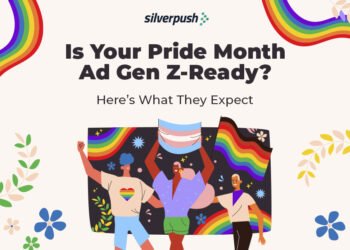Reading Time: 9 minutes
When was the last time you felt truly understood by your bank? Not just tolerated as an account number, but genuinely recognized as a person with unique financial needs and goals?
If you’re like most people, your answer probably ranges from “rarely” to “never” – and there’s data to back this up. There’s a significant gap between customer expectations and experiences: while customers expect companies to understand their individual needs and expectations, they would readily switch to a different provider if they felt they were being treated impersonally.
This gap represents both a challenge and a massive opportunity in today’s digital banking landscape.
At our recent #GROWTH Mumbai Summit, we had the privilege of hosting Mr. Vaidyanathan, Managing Director and CEO of IDFC First Bank. His institution has accomplished something remarkable: growing deposits from ₹10,000 crores to ₹2 lakh crores in just five years with only 900 branches.

“If we had done it the traditional way,” Mr. Vaidyanathan explained during our conversation, “we’d probably need about 3,000 branches to get to 2 lakh crores in this time.” Their secret? As he put it simply: “We used technology massively.”
But this isn’t just another tech transformation story. It’s about fundamentally rethinking customer relationships in banking. As Mr. Vaidyanathan pointedly asked: “In today’s world, when every customer has their own bank, why should they move to our bank? And even after coming there, why should they keep money here?”
The answers reveal a masterclass in customer-centric growth that any forward-thinking organization should study closely.
Turning Limitations Into Launchpads
When you’re building a bank from scratch with a limited physical presence, how do you compete with established institutions that have thousands of branches? For IDFC First Bank, constraints became the catalyst for innovation.
“Constraints drive innovation,” says Mr. Vaidyanathan. Instead of pouring resources into physical expansion, the bank invested heavily in creating a technology ecosystem that could deliver exceptional experiences regardless of physical touchpoints.
This wasn’t about cutting corners. It was about finding a smarter path to growth.
Building a Future-Ready Foundation
While many banks offer digital services, most still operate on outdated, monolithic systems. IDFC First Bank chose a different path—they built a full-stack technology infrastructure designed from the ground up for flexibility, agility, and customer-centricity.
“The whole (Martech) stack has to be really good,” Mr. Vaidyanathan emphasized.
This foundation allows the bank to adapt dynamically to each customer’s needs. For instance:
- If a customer only has a loan product, the mobile app hides all irrelevant features
- If the customer adds a savings account or credit card, the app reconfigures itself to reflect the new relationship
This level of real-time, contextual adaptation sets their approach apart. They offer more than digital banking—they offer intelligent banking.
From Mass Marketing to Meaningful Conversations
Let’s face it: customers don’t care about internal KPIs. They care about relevance. As Mr. Vaidyanathan put it bluntly, “If you’re not personalizing, you’re spamming.” In today’s world, where customers are bombarded with messages from every direction, relevance isn’t optional—it’s essential.
Consider this scenario: a customer receives 20 emails in a week from your home loan team, wealth management team, insurance team, and more. It doesn’t matter how great your offers are. To them, it’s just noise—overwhelming, frustrating noise.
The Coordination Challenge
This was a significant hurdle IDFC First Bank faced as it scaled. “In any large organization, every product manager wants to push their product,” Mr. Vaidyanathan explained. “The home loan team wants to target high-affluence customers. So does the car loan team, the wealth team, the insurance team—you name it.”
The result? The same customer ends up being targeted repeatedly, eroding trust and engagement.
Building the Intelligence Layer: Beyond Simple Governance
So, how did they solve this problem? By building what Mr. Vaidyanathan calls a “governance center” powered by intelligence. Think of it as a traffic controller—but smarter.
Governance alone isn’t enough. Sure, you can set rules like, “Home loans go first, then car loans two months later.” But that’s just sequencing. What IDFC First Bank did was layer intelligence on top of governance.
Here’s how their system works:
- Unified Data Lake: Customer data flows from multiple sources—core banking systems, credit bureaus, and external account aggregators—into a central platform.
- Customer DNA Creation: This data forms a detailed profile with thousands of data points that capture behavior, preferences, risk profiles, and product history.
- Intelligent Orchestration: The system determines not just what to offer, but how and when:
- Which offer is most relevant right now?
- Should this customer receive a WhatsApp message or an email?
- Is this something that should come from a relationship manager or through an automated channel?
This approach transformed IDFC First Bank’s customer communications from disjointed campaigns to cohesive conversations.
The True Cost of Irrelevance
The numbers tell a compelling story. According to McKinsey, 76% of consumers expect companies to understand their needs and expectations. Yet, many banks still rely on generic offers that feel irrelevant at best and intrusive at worst.
As IDFC First Bank grew, so did its teams. And with scale came complexity.
“We reached a point where multiple product teams were sending communication to the same customer,” Mr. Vaidyanathan recalls. “One was pushing a credit card while another a personal loan. A third was offering wealth management. The result? Spam.”
From Fragmentation to Unified Intelligence
This fragmentation led to a critical realization: personalization wasn’t just about engagement. It was also about governance.
So, the bank created a centralized intelligence layer to manage orchestration. Here’s how it works:
- All customer data is pooled into a unified data lake, combining internal systems, bureau data, and third-party sources
- A Customer DNA (CDNA) is generated for each customer, capturing behavior, preferences, risk profiles, and product history
- This CDNA is used to determine:
- What should be communicated?
- Who should communicate it?
- When and how should it be delivered?
This eliminates conflicting messages and ensures that each customer receives only what’s relevant.
Mr. Vaidyanathan shared a powerful example that drives this point home:
“If you have a 60-year-old person with a ₹1 crore loan with the bank, and your system still offers them a two-wheeler loan, it’s not just irrelevant—it’s insulting.”
This is where governance powered by intelligence becomes crucial. It protects customer dignity while driving better outcomes.
Behind this intelligence layer are customer data and engagement platforms like MoEngage. These platforms help brands orchestrate contextual experiences across channels while optimizing for frequency, channel preference, and priority.
Key Takeaways for Growth Leaders: What IDFC First Bank Teaches Us About Customer-Centric Growth
After seeing how IDFC First Bank built its intelligence layer, you might wonder: What does all this mean for the average business leader? How can these principles translate across industries?
As our conversation with Mr. Vaidyanathan continued, what struck us wasn’t just the technical sophistication of their approach, but the deeply human philosophy behind it. Here are the insights that stayed with me long after our discussion ended:
1. Solve Problems, Don’t Just Sell Products
Most banks bombard customers with product information, but IDFC First Bank focuses on life solutions – retirement planning tools when you’re worried about your future, investment recommendations when markets are volatile, or car-buying calculators when you’re dreaming of that new vehicle.
Try this: Take a hard look at your customer touchpoints. Are you truly solving problems or just pushing products? The difference might seem subtle, but it’s everything to your customers.
2. The Fine Line Between Personalization and Pestering
It’s easy to fall into the trap of “more campaigns = more engagement.” But as Mr. Vaidyanathan pointed out, when different teams bombard the same customer with disconnected messages, the result isn’t growth—it’s frustration.
What made IDFC First Bank stand out was its ability to centralize control. Through its Customer DNA (CDNA) framework and its martech stack, it created a system that respects the customer’s context, frequency tolerance, and intent.
Worth trying: Consider how your teams coordinate customer communications. If your answer is “they don’t,” you’re probably overwhelming your customers with disconnected messages.
3. Don’t Wait for Complaints – Anticipate Them
There’s something magical about a company that solves your problem before you even mention it. IDFC First Bank has mastered this art.
Imagine getting a notification that says, “We noticed your transaction didn’t go through. Here’s what happened and how to fix it.” That’s not just service; that’s showing you genuinely care.
Something to consider: What problems can you anticipate for your customers? How might you solve them proactively before they become frustrations?
4. Convenience Isn’t Just Nice – It’s Everything
At the end of the day, customers don’t care how advanced your systems are or how complex your backend is. They care about one thing: “Does this make my life easier?”
For IDFC First Bank, that meant creating dynamic app interfaces that adjust based on customer needs, offering zero-fee services, and removing the friction that legacy banks had normalized.
And the results speak for themselves – 20X growth in deposits without the traditional branch network.
Ask yourself: Audit your journeys. Where are the unnecessary steps? Where do you ask for too much? Streamline ruthlessly. Convenience is what keeps customers coming back.
5. Ethics Build Loyalty That Promotions Can’t Buy
Perhaps the most powerful insight came when discussing long-term strategy. While many businesses chase quarterly results, IDFC First Bank plays a longer game.
They’ve built their foundation on three pillars: ethical banking, digital banking, and social good banking. These aren’t just talking points. They’re principles that guide every decision, from product development to customer service. And in a world where trust is increasingly rare, these principles have become powerful differentiators.
Worth reflecting on: What principles guide your business decisions? And more importantly, would your customers recognize them in their everyday interactions with you?
Why MoEngage Is the Ultimate Solution for Customer-Centric Growth
All the lessons from IDFC First Bank—whether it’s solving real customer problems, orchestrating relevant engagement, or building trust through proactive service—point toward one common truth: growth today is deeply tied to how well you understand and serve your customers.
But let’s be honest—building what IDFC First Bank has built takes years. Teams, tech stacks, and governance models don’t just magically align. For most businesses, the intent is there, but the infrastructure to execute at scale is missing.
That’s exactly where MoEngage steps in.
MoEngage’s Customer Data and Engagement Platform brings the blueprint to life. It connects the dots—between teams, data, and touchpoints—so you can deliver the kind of intelligent, seamless customer experiences that drive real growth.
1. Intelligence-Driven Personalization
What we heard from Mr. Vaidyanathan is something every marketing leader has felt—too many messages, not enough relevance. When teams operate in silos, personalization becomes noise.
MoEngage’s Sherpa AI engine serves as that critical intelligence layer, similar to IDFC First Bank’s Customer DNA approach.
MoEngage analyzes customer behavior across touchpoints to determine:
- What content will resonate with each individual
- Which channel do they prefer for different types of communication
- When they’re most likely to engage
This ensures that every message feels relevant and timely—turning what could be spam into valuable communication.
2. Omnichannel Orchestration That Actually Works
Your customer doesn’t think in “channels.” They move between email, apps, WhatsApp, and the web seamlessly. And they expect your brand to do the same. Remember Mr. Vaidyanathan’s concern about multiple teams bombarding the same customer? MoEngage’s Customer Journey Orchestration features solve this exact problem by:
- Creating unified customer journeys across email, SMS, push, WhatsApp, and in-app messaging
- Implementing frequency caps to prevent communication fatigue
- Prioritizing messages based on business rules and customer preferences
- Coordinating communication across product teams through a central platform
This ensures that your customers receive a coherent experience, not fragmented communications when you send service alerts, promotional offers, or educational content.
Example: A customer who browsed credit cards on your website but didn’t apply can automatically receive an in-app reminder the next time they open the app, followed by a WhatsApp nudge three hours later—only if they didn’t convert.
3. Building Your Customer’s Profile With Unified Analytics
The foundation of IDFC First Bank’s success was its comprehensive customer profiles. MoEngage’s Analytics provides similar capabilities, creating unified customer profiles by aggregating data from:
- Your website and mobile app
- Transaction systems
- CRM data
- Third-party sources
- And more
This gives you that critical 360-degree customer view, helping you understand not just what customers are doing, but why they’re doing it.
4. Proactive Service Communication at Scale
Remember how IDFC First Bank turned potential frustrations into moments of delight through proactive service? MoEngage’s Alerts and Real-Time Triggers make this possible for any business.
Set up automated flows to:
- Alert customers about important account changes
- Provide status updates on transactions or applications
- Flag potential issues before they become problems
- Send personalized reminders for upcoming events or deadlines
These timely, relevant communications demonstrate that you’re paying attention and truly care about the customer experience.
5. Optimization Through Continuous Learning
Perhaps most importantly, MoEngage doesn’t just execute campaigns—it learns from them. The platform’s AI-powered optimization continually tests different:
- Message variations
- Send times
- Channels
- Offers
This creates a virtuous cycle in which your customer engagement becomes increasingly effective over time, just as IDFC First Bank refined its approach to driving 20x deposit growth.
From Strategy to Execution, MoEngage Connects the Dots That Matter
What makes MoEngage powerful is how it integrates these capabilities into one platform, eliminating the need to cobble together multiple point solutions. In fact, IDFC First Bank’s story proves it: personalized, proactive, and ethical engagement builds long-term growth. But replicating that without the right tools is nearly impossible.
That’s where MoEngage’s Customer Data and Engagement Platform changes the game.
It brings together everything you need—data, intelligence, automation, and orchestration—on one platform. So instead of stitching together a dozen tools, your teams can focus on what really matters: delivering value to customers, at scale, with precision.
This integrated approach allows you to:
- Move quickly without technical complexity
- Ensure consistency across all customer touchpoints
- Measure impact holistically instead of in channel silos
- Scale personalization without scaling your team
In essence, MoEngage provides the technology foundation that enabled IDFC First Bank’s success, but packaged in a way that any organization can implement, regardless of size or technical resources.
By focusing on intelligence-driven engagement rather than just campaign execution, MoEngage helps you build the kind of meaningful, relevant relationships that drive sustainable growth. It turns the lessons from IDFC First Bank’s journey into practical reality for your business.
Final Thoughts: Your Path to Customer-Centric Growth
IDFC First Bank’s story shows what’s possible when you combine customer obsession with intelligent technology. Whether you’re in banking or another industry, the principles remain the same: understand your customers deeply, communicate relevantly, and solve problems proactively.
Ready to start your own customer-centric growth journey? We’d love to show you how MoEngage can help. Book your free demo today and discover how MoEngage can transform your customer engagement strategy—from day one.
The post The Art of Hyper-Personalization: How IDFC First Bank Mastered Customer-Centric Innovation appeared first on MoEngage.















